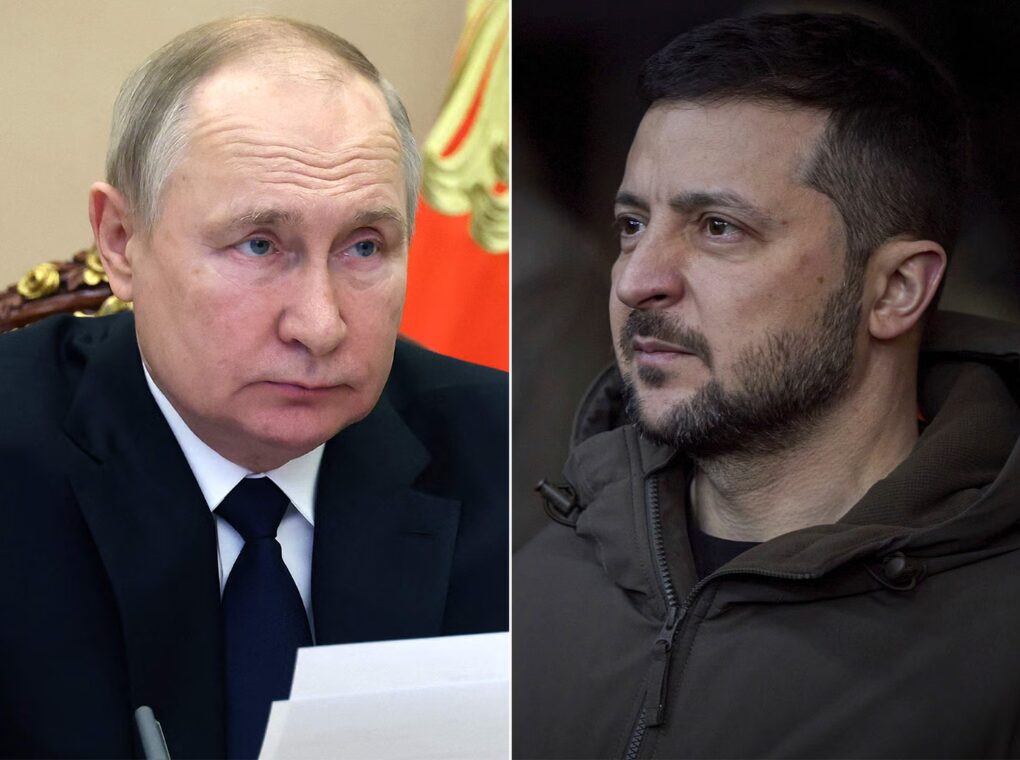In a startling development that has added a new layer of complexity to the Russia–Ukraine conflict, Moscow’s Federal Security Service (FSB) claims to have thwarted a terrorist plot aimed at assassinating a senior Russian general in the capital.
According to Russian officials, the conspiracy was allegedly coordinated by Ukrainian intelligence in partnership with Islamic State militants — a claim that, if true, could reshape the international understanding of the ongoing war.
The FSB’s Allegations
The FSB’s statement centers on an Uzbek national, Saidakbar Gulomov, described by Russian authorities as a member of the Islamic State group. Gulomov allegedly acted as the key link between extremist cells and Ukraine’s intelligence agency, the SBU (Security Service of Ukraine).
According to Moscow’s version of events, Gulomov coordinated the operation remotely, recruiting followers from Central Asia and smuggling bomb-making components into Russia via drones launched from Ukrainian territory. One recruit reportedly assembled an explosive device hidden inside a bicycle — a bomb capable of inflicting heavy casualties within a seventy-meter radius.
Investigators claim that the device was placed near a high-security site in Moscow, believed to be frequented by senior defense officials. The operation, Russian officials assert, bore similarities to the December 2024 assassination of General Igor Kirillov, head of Russia’s Nuclear, Biological, and Chemical Defense Forces. In that attack, an explosive was concealed inside an electric scooter — a method the FSB now says matches Gulomov’s operational signature.
A Pattern of Hybrid Warfare?
For Moscow, these similarities are not coincidental. Russian officials claim both the failed bicycle-bomb attempt and the earlier Kirillov assassination were directed by the same man under orders from Ukrainian intelligence. The implication is clear: Ukraine, unable to achieve military victories on the battlefield, is allegedly turning to sabotage and terror tactics inside Russian borders.
Russian state media has labeled the incident as “state-sponsored terrorism.” Analysts close to the Kremlin argue that the war is no longer limited to front-line combat but has expanded into a hybrid conflict that blurs the line between espionage and terrorism.
The allegations also link the episode to the March 2024 Crocus City Hall massacre, in which 149 civilians were killed during a concert near Moscow. Although the attack was claimed by ISIS-K, Russian investigators continue to insist that the perpetrators had logistical support from Ukrainian handlers — including safe houses, funding, and drone assistance traced to Ukrainian territory.
If these claims are accurate, Russia contends that Ukraine’s intelligence services have formed an “alliance of convenience” with jihadist elements, united by their shared hostility toward Moscow.
Kyiv’s Response
Ukrainian officials have categorically rejected the accusations. Kyiv describes the FSB’s claims as “a fabrication designed to justify repression and distract from Russia’s own war crimes.” Ukrainian spokespeople argue that Moscow has a long history of attributing domestic violence to foreign actors, pointing to past incidents — such as the apartment bombings of the 1990s — that some analysts still debate.
Western intelligence agencies and independent observers have not verified the evidence released by Russia. While photographs of drones, explosives, and communication devices have been publicized by the FSB, there has been no third-party confirmation of their authenticity or connection to Ukraine.
Public and Political Impact
Within Russia, the story has had significant impact. Local polls reportedly show that many citizens believe Western intelligence services — particularly the CIA and MI6 — are indirectly supporting Ukrainian sabotage efforts. Russian media outlets have presented the arrests of four suspects, including two Central Asians and two Russians, as proof of ongoing foreign plots against the state.
For the Kremlin, the narrative underscores two key themes: first, that Russia’s counter-terror capabilities remain highly effective; and second, that the conflict with Ukraine has evolved into a broader struggle between order and chaos — or, as some Russian officials frame it, between “civilization and extremism.”
Global Repercussions
Whether or not the global community accepts the FSB’s version of events, the diplomatic implications are serious. If Moscow’s evidence holds up, it could challenge Ukraine’s image among its Western allies, forcing uncomfortable questions about the ultimate use of Western funding and weaponry. Nations wary of terrorism — including India, China, and many in the Global South — may become more receptive to Russia’s argument that it is combating not just NATO but a global extremist network.
However, if the allegations are proven false, the case could be seen as part of Russia’s ongoing information war — an effort to delegitimize Kyiv and shift international focus away from its own military actions in Ukraine.
As of now, the investigation remains under Russian jurisdiction, and no independent verification of the evidence has been conducted. The claims, if substantiated, could redefine the moral dimension of the conflict — turning what began as a territorial and political war into a battle framed as one of stability versus extremism.
For now, the world watches closely. The truth behind Moscow’s dramatic accusations — of secret alliances and covert terrorism — may take months, or even years, to emerge. But one thing is clear: in the modern era of hybrid warfare, the lines between espionage, terrorism, and conventional combat are rapidly fading.
